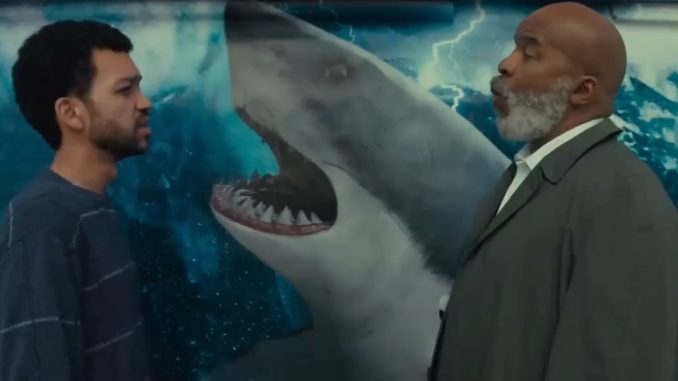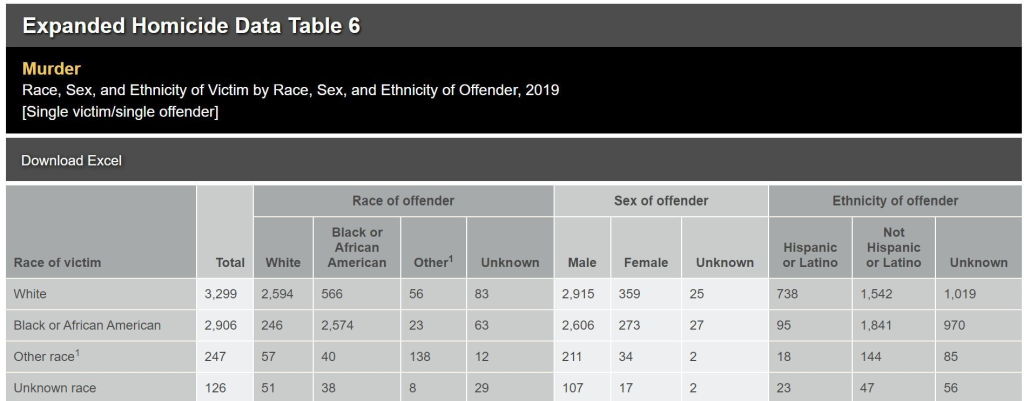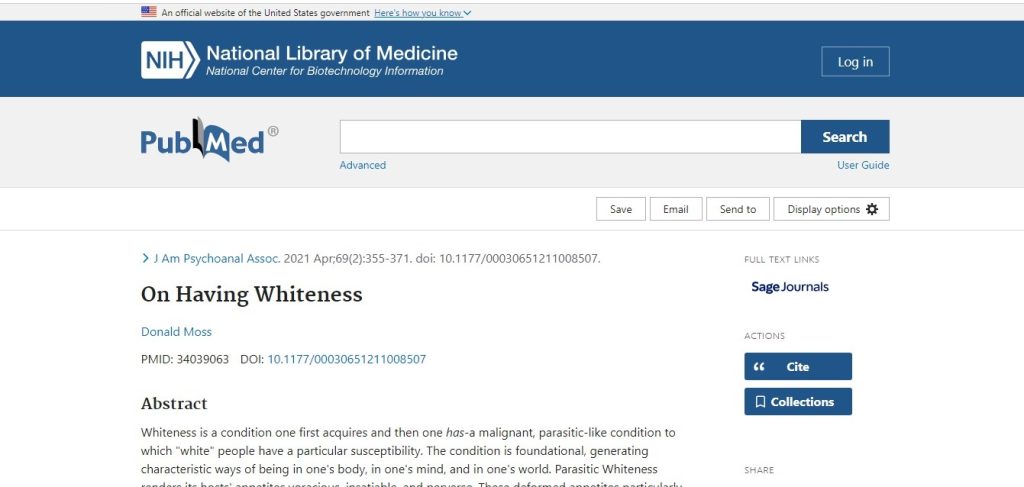
Focus Features recently announced an upcoming movie called, “The American Society of Magical Negros.” If the title made you do a double take, you’re not alone. Yet while its name may seem unserious, the film’s message is anything but.
At one point in the trailer, two African American men are shown standing in front of a shark mural. “What’s the most dangerous animal on the planet?” one of them asks before quickly answering his own question, saying, “White people, when they feel uncomfortable.”
This is an odd claim given that FBI crime data shows white people commit a minority of all homicides despite being a majority of the population. What’s more, whites are far more often the victims of interracial killings than they are the perpetrators: in any given year, the number of black criminals who murder white victims is more than double the number of white criminals who murder black victims.

Yet despite those facts, the idea that white people are essentially predatory animals is far from being unique to this film. In a 2021 paper published on the National Library of Medicine’s PubMed site, Dr. Donald Moss characterized “whiteness” as being “a malignant, parasitic-like condition” which manifests in “voracious, insatiable, and perverse” appetites.

Meanwhile, the New York Post reported this past March that the United Federation of Teachers scheduled a workshop on “the harmful effects of whiteness in our lives.”

This echoes rhetoric found on the YouTube channel Unpacked; it maintains that “whiteness is by definition white supremacy.” A similar message is presented to children in “Not My Idea: A Book About Whiteness,” which is aimed at kids aged five and up. Rather than portraying whiteness as some kind of disease, the book suggests that white people are literally diabolical, explaining on page 59 how they made a deal with the devil to obtain wealth and privilege at the expense of minorities.

When a group of people are consistently portrayed as being inherently threatening and entirely responsible for the world’s problems, resentment is sure to follow. Unfortunately, violence isn’t far behind. The manifesto of Nashville school shooter Audrey Hale was obtained by conservative commentator Steven Crowder, and it reveals that Hale expressed deep hatred for white children, denigrating them as “little crackers” with “white privileges.”

Cory Batey expressed a similar outlook when he raped his victim: she later recalled in court how he “continued to abuse and degrade me, urinating on my face while uttering horrific racial hate speech that suggested I deserved what he was doing to me because of the color of my skin.” So did Temar Bishop when he said his victim deserved to be raped out of revenge for slavery.
This appears to be consistent with the mindset of Steven Hutcherson, who reportedly said that he wants “all the white people dead” before he allegedly stabbed two teenage girls. Both girls survived, but the man seen being gunned down on video by Tahj Matthews and Maurice Holmes wasn’t so fortunate; Matthews later told police that they simply wanted to “kill a white guy.” While cases like these are horrifying, there is historical precedent for a whole lot worse.
For years, Rwanda’s Hutu Power movement portrayed lighter skinned Tutsi citizens as being responsible for every conceivable ill. What’s more, media outlets insisted that the country would never succeed unless Tutsis were eliminated. If you know how this story ends, then you might be feeling a little uneasy right now, and there’s a good reason for that. Because given the evidence, there’s nothing magical about where this could end up.
This is why it’s essential to destroy the cultural Marxist notion that people can be categorized as either noble victims or contemptable oppressors based on their race, gender, or sexuality. Earlier in the year, President Donald Trump called for defunding any school or program that includes “critical race theory, gender ideology, or other inappropriate racial, sexual, or political content onto our children.” He also pledged to open “civil rights investigations into any school district that has engaged in race-based discrimination.” While far more needs to be done, those would be important steps in the right direction.
And they can’t come soon enough.
Be the first to comment